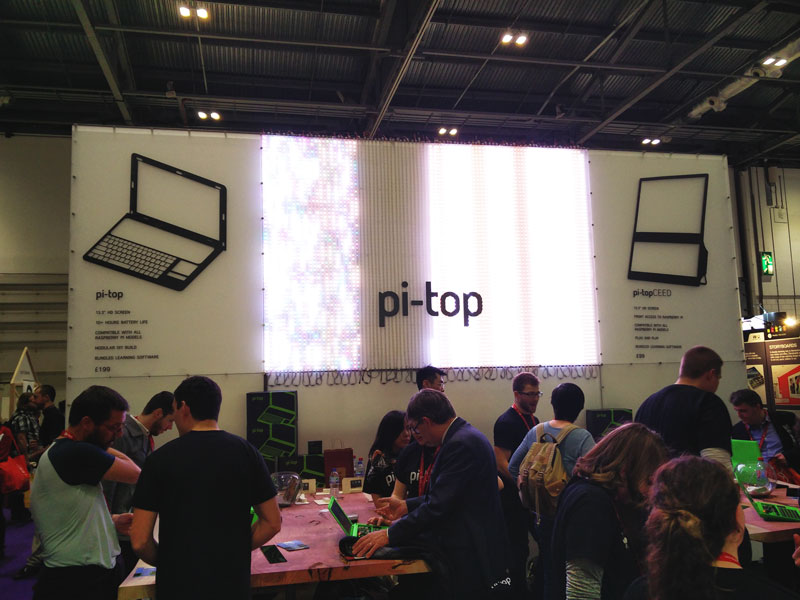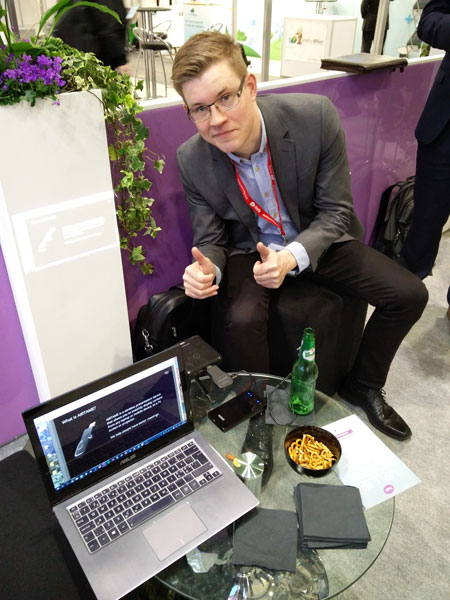
We recently attended Bett 2016, the largest education technology convention in Europe where the latest innovations in education technology are displayed every year.
We noticed a few trends in technology made for the classroom, as well as learned a thing or two about maneuvering in an event of this size as a creator of technology.

Around every corner of the conference, it was clear that interactive screens and projectors are becoming a big part of the educational environment. In particular, interactive touch screens seemed to be the ever-present gadget at all the major booths, such as Promethean, Smart, Sony, and Samsung.
However, it became clear that giving a persuasive presentation of these devices is no easy feat. Since the presenter is usually facing the screen, instead of the crowd, connecting with your audience becomes a hard nut to crack. One could fear that this scenario will play out similarly in the classrooms as well.
Another all-encompassing trend were initiatives formed to get both primary school- and high school-aged students—and even teachers—to learn to programme. These projects came in various forms, from Pi-top, a laptop shell for the Raspberry Pi mini-computer, to robotics equipment and coding challenges.

These trends were most impressively represented by BBC and Microsoft’s cooperation to equip every student in the UK attending 7th grade with their palm-sized micro:bits computers.
Another frequently seen trend was a range of attempts to use game-based learning. Loads of booths presented their unique way of getting kids to learn math or help them with reading disabilities through a gamified user interface. This way of using digital technology seems to be a tool that could have impressive results.
This is especially true for students who might not be suited for traditional teaching formats, because let’s face it, even adults find it boring to sit and listen to someone talk for hours on end.
From the perspective of technology creators looking to succeed at Bett, we discovered a couple key lessons everyone creating technology for the classroom should know.
A general requirement for all things in education is simplicity. A long list of features is compelling on paper, but when a range of different people from very young students to mature teachers need to use the devices in the classroom, the user interface and simplicity become the driving factors.
Solving issues in a simple way seems to be the way forward if these products are to actually be used in the educational setting, whether the forum is the primary school classroom or the university lecture hall.
We’ve grown more confident that Airtame could help both students and teachers connect to screens easily and will continue to develop uncomplicated software interfaces, as well as avoid extra unnecessary features.
It’s easy to blend in with the vast number of impressive booths at a conference like Bett. To stand out, one must have a truly unique product and make sure to demonstrate this in an eye-catching way.
Again, simplicity is key.
You need to give the crowd a sense of how your product can empower students and teachers within the first few seconds of your demonstration. This way you can also gain the attention of by-passers looking to trawl through the conference quickly and give them the full knowledge of how your product can help them get a better learning environment.
